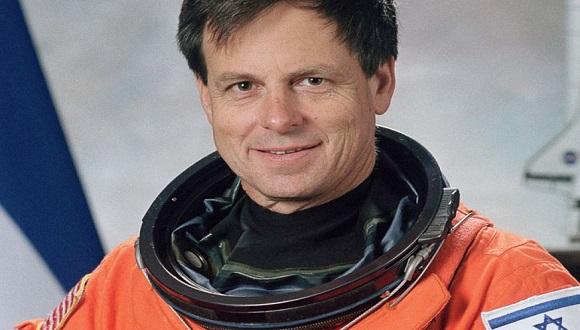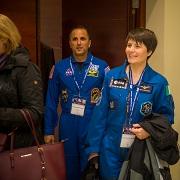About Ilan Ramon
Ilan Ramon, the first Israeli astronaut, was born on June 20, 1954 in Ramat Gan, and grew up in Beersheva.
He completed an Israeli Air Force pilot's course with honors in 1974 and served as a fighter pilot with the IAF, ultimately attaining the rank of Colonel. As a young pilot he participated in the 1981 bombing of the Iraqi nuclear reactor. The last IAF post that he held before leaving to pursue academic study was Deputy Squadron Commander A, F-4 Phantom Squadron.
In 1983 he began electrical engineering and computer science studies at Tel Aviv University. On earning his degree he joined the Lavi fighter jet development team. In 1988 he returned to the IAF where he held a number of senior posts, including Squadron Commander, F-16 Squadron and Head of the Department of Operational Requirement for Weapon Development and Acquisition.
Ramon's selection as the first Israeli astronaut, in the framework of a 1995 cooperation agreement between the Israel Space Agency and the US National Aeronautics and Space Administration (NASA), made him a celebrated Israeli success story. Ramon and his backup, Yitzhak Mayo, were chosen for the mission in 1997 after extensive screening and testing.
In 1998 Ramon, accompanied by his family, went to the Johnson Space Center in Houston, Texas for astronaut training. He was assigned to be a payload specialist on the Columbia space shuttle – a mission for which he spent four and a half years training.
On January 16, 2003 the Columbia space shuttle was launched from the Kennedy Space Center in Florida with seven astronauts on board, including Ramon – who thus became the first Israeli astronaut in space. Sixteen days later, on February 1, 2003, 16 minutes before its scheduled landing, the shuttle disintegrated over Texas on re-entering the Earth's atmosphere, and its entire crew perished.
Ilan felt that education is the key to advancing Israeli society, and that by contributing to society one fulfills the Zionist ideal. For him, space flight was the realization of both a personal and a national dream.
He was survived by his wife Rona and their four children. He was 48 years old at the time of his death, and was buried in the Nahalal Military Cemetery.





